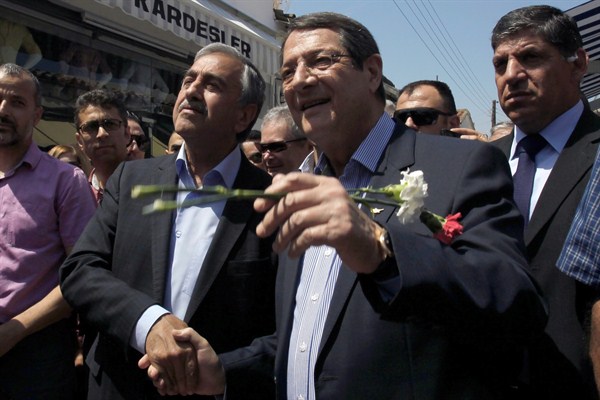It has been a busy month in Cyprus, with visits from European Commission President Jean-Claude Juncker, EU foreign policy chief Federica Mogherini and Turkish President Recep Tayyip Erdogan. And for the first time since the early 2000s, there seems to be real optimism that one of the longest-running conflicts in the world could finally be resolved.
This newfound optimism is due in large part to the election of Mustafa Akinci as president of northern Cyprus last April. Akinci came to power on a pledge to reach an agreement on the reunification of Cyprus, which since 1974 has been divided between the Greek-speaking south, officially the Republic of Cyprus, and the breakaway Turkish-speaking north, which is only recognized by Turkey. Akinci’s position is a major shift in policy for northern Cyprus, which has been consistently ruled by right-wing leaders who have advocated for independence over reunification.
Staying true to his election promise, Akinci revived U.N.-brokered peace talks with his Greek Cypriot counterpart, Nicos Anastasiades, in May, shortly after he assumed office. By all accounts, the talks are proving fruitful. Akinci said earlier this month that negotiations could conclude successfully in a matter of months. And at the conclusion of the latest round of talks Monday, the U.N. special adviser on Cyprus, Espen Barth Eide, said that both sides “continued to make progress towards their shared vision of a united, federal Cyprus.”

